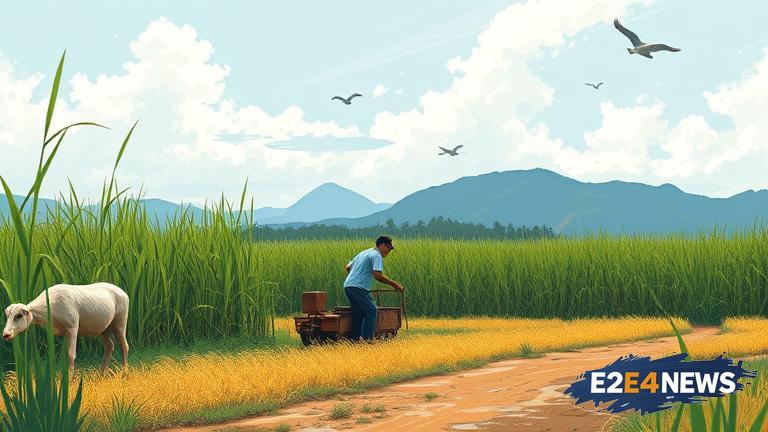The Philippines, under the leadership of President Ferdinand Marcos Jr., is seriously considering a halt on rice imports and implementing higher tariffs to protect local farmers and boost the economy. This move is seen as a strategic effort to reduce the country’s dependence on imported rice and promote self-sufficiency in the agricultural sector. The decision comes amidst rising concerns over the impact of imported rice on local farmers, who have been struggling to compete with cheaper imports. The Philippine government has been exploring ways to support local farmers and increase their competitiveness in the market. One of the key measures being considered is the imposition of higher tariffs on imported rice, which would make it more expensive for consumers to buy imported rice. This, in turn, would encourage consumers to buy locally produced rice, thereby supporting local farmers. The government is also considering a halt on rice imports, which would give local farmers a chance to increase their production and meet the demand for rice in the country. The move is expected to have a significant impact on the country’s economy, as rice is a staple food in the Philippines and a major contributor to the country’s food security. The government has been working closely with stakeholders, including farmers, traders, and consumers, to ensure that the measures being considered are effective and do not harm the interests of any group. The Philippine Department of Agriculture has been tasked with conducting a thorough study on the impact of imported rice on local farmers and the economy. The study is expected to provide valuable insights and recommendations on how to support local farmers and promote self-sufficiency in the agricultural sector. The government has also been exploring ways to improve the productivity and efficiency of local farmers, including the provision of training, credit, and other forms of support. The move to halt rice imports and impose higher tariffs is seen as a major shift in the country’s economic policy, as the Philippines has traditionally been a major importer of rice. The government is confident that the measures being considered will have a positive impact on the economy and will help to promote self-sufficiency in the agricultural sector. However, some stakeholders have expressed concerns over the potential impact of the measures on consumers, who may face higher prices for rice. The government has assured consumers that it will do everything possible to ensure that the measures being considered do not harm their interests. The Philippine government is committed to supporting local farmers and promoting self-sufficiency in the agricultural sector. The move to halt rice imports and impose higher tariffs is seen as a key step towards achieving this goal. The government is expected to make a final decision on the measures being considered in the coming weeks. The decision is expected to have a significant impact on the country’s economy and will be closely watched by stakeholders. The Philippine government is confident that the measures being considered will help to promote self-sufficiency in the agricultural sector and support local farmers. The move is seen as a major shift in the country’s economic policy and is expected to have a positive impact on the economy. The government has assured stakeholders that it will do everything possible to ensure that the measures being considered are effective and do not harm the interests of any group. The Philippine Department of Agriculture has been tasked with monitoring the impact of the measures being considered and making recommendations for further action. The government is committed to supporting local farmers and promoting self-sufficiency in the agricultural sector. The move to halt rice imports and impose higher tariffs is seen as a key step towards achieving this goal. The decision is expected to have a significant impact on the country’s economy and will be closely watched by stakeholders.
